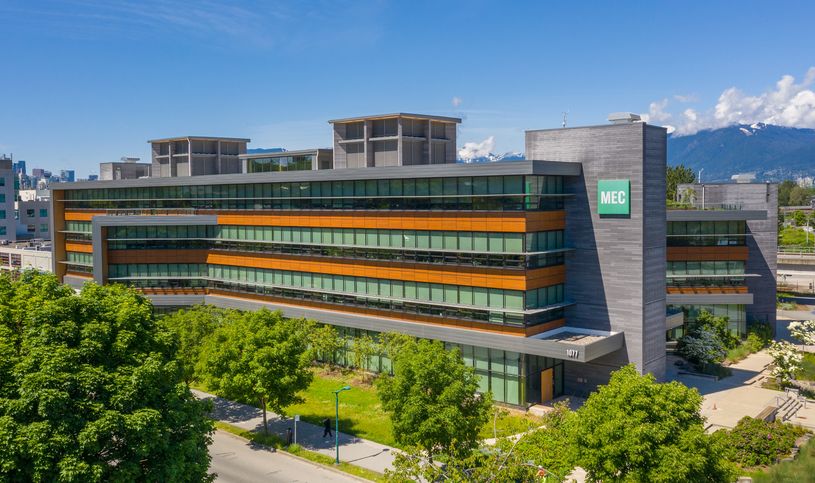On Friday, October 2, a BC Supreme Court judge killed hopes of saving Mountain Equipment Co-op (MEC). Usually courts rule in favour of the owners of property against other claims – such as granting an injunction to Coastal GasLink that led to the RCMP’s invasion of Wet’suwet’en lands. But in the MEC case the owners, the 5.8 million coop-members, had no rights.
Yet again, the courts act in class interests. This is another victory for capital, because as in any court battle, the refs are on their side, their players are brimming with steroids, and their opponents are blind-folded.
The sale of MEC to Kingswood Capital Management, a California-based private investment firm, was announced on September 14. At the same time MEC filed for creditor protection, citing financial struggles, and increasing competition (particularly online).
The news came as a particular shock to MEC’s co-op members. The first that members knew about the sale was from the media. The MEC board did not consult with the members. Both the BC Co-op Association and MEC’s own bylaws state that members needed to be consulted on any partial or total sale of co-op assets prior to the sale taking place. However, as creditor protection laws don’t recognize the co-op members with this status, the judge said that MEC could trample on its own bylaws and its members. Even if creditor protection laws don’t recognize co-op members as owners, MEC’s own rules do. Justice says that the members should decide. But the courts don’t deal in justice, they deal in property law and protecting the rich and privileged.
Outrage at the sale was nearly universal among MEC’s 5.8 million members, with a Change.org petition to stop the privatization of MEC quickly racking up over 145,000 signatures in the days after the sale was announced. Along with the surprise and heartbreak of the announcement, members had other questions. How can MEC claim financial troubles when COVID has caused outdoor activities to boom? How do you justify these claims after building two brand new, highly expensive buildings in Vancouver alone?
With all this indignant energy fuelling the membership, a campaign, Save MEC, to prevent this undesirable, unexpected, and uncooperative sale was launched. Thanks to its beloved status in the hearts of millions of Canadians, the membership-ownership mobilized immediately. People shared their stories about the ways MEC had changed their lives, brought their families together, and helped them fall in love with the outdoors. How could one of the few companies to actually earn this communal reputation stab the people who made it so great in the back with an American, private equity-shaped knife, and sans consultation? Save MEC took the Board to court trying to stop the sale.
Trust is one of the most difficult business assets to build, and MEC destroyed almost 50 years of trust in a few weeks. One of Canada’s great companies has been sold to foreign corporate raiders like so many before. History suggests that Kingswood will slowly squeeze the life from MEC, before selling it off for parts. Kingswood has already made clear there will be large job losses, saying they will keep 75 percent of the “active employees,” but as always some workers are not active as they are on leave and some are temporarily laid off due to COVID. Out of a workforce of 1,500 by Kingswood’s own statement, 700 jobs are on the line. And what about wages and conditions for the workforce?
This story is a business allegory that applies seamlessly to politics where politicians routinely make promises that are instantly revoked the moment they endanger capitalist interests or interferes with capitalist expansion. 5.8 million members were overruled by a Board of nine people, because the scales measure economic forces, not demographic ones. In a final insult, the MEC website states that the court terms “prohibit the redemption of members’ shares at this time,” so the members’ won’t get their shares, money worth $192 million. Yet the members’ data will be transferred to the new owners!
In recent years MEC had increasingly felt more like a big corporation than a co-op. In 2012 the Board pushed through changes in the elections so that they – the Board – could recommend which candidates to vote for and even refuse to allow a person on the ballot if the Board decided they were not qualified. Almost all the Board members have no roots in co-ops, instead bragging about their corporate experiences. MEC then rebranded, dropping Co-op from its name and logo as the Board sought to change to a corporate style. They also moved into high-end retail and real estate with expensive new stores and an office block costing $35 million
The corporate raiding of MEC and the courts complicity is a warning to co-ops everywhere. The capitalist class have no interest it co-op values, they are interested in profiteering.
The fight for MEC’s life continues, as does the Save MEC campaign, and everyone who cares for the company, from its members, to workers, to those who understand that financial capital must be stopped, will continue struggling. Save MEC could consider an occupation of the stores by the owners – the coop members – and the workforce. It would get a big response and further highlight the Board’s arrogance.
While few companies have the true reputation of MEC, this story isn’t an outlier, and these occurrences will only increase in our COVID-19 and depression-racked economy. COVID has driven plenty of other businesses to death, and this type of private equity corporate raidership will continue to consolidate our economy in fewer and stronger hands.
Unless the sale is stopped, former members may still be able to go into one of their former stores, and despite all the encouraging empty words from Kingswood and the MEC board, MEC as the co-op that was loved and treasured will be no more. It’s only a matter of time before its body is in the ground.



